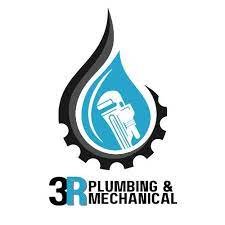The Ultimate Guide to Choosing the Right HVAC System for Your Home
Selecting the right HVAC (Heating, Ventilation, and Air Conditioning) system for your home is a significant decision that impacts your comfort, energy efficiency, and utility bills. With numerous options available, it can be overwhelming to determine which system best suits your needs. This ultimate guide will walk you through the essential factors to consider when choosing an HVAC system, ensuring you make an informed decision that enhances your home’s comfort and efficiency.
Understanding the Basics of HVAC Systems
Before diving into the selection process, it’s important to understand the primary types of HVAC systems available:
Split Systems:
Description: Split systems are the most common type, consisting of an outdoor unit (compressor and condenser) and an indoor unit (evaporator coil).
Pros: Efficient for both heating and cooling; flexible installation; suitable for most homes.
Cons: Requires ductwork; outdoor unit can be noisy.
Heat Pumps:
Description: Heat pumps transfer heat from one place to another, providing both heating and cooling.
Pros: Energy-efficient; can reduce heating costs significantly; good for moderate climates.
Cons: Less effective in extremely cold temperatures.
Ductless Mini-Splits:
Description: These systems consist of an outdoor unit and one or more indoor units, offering targeted heating and cooling without ductwork.
Pros: High efficiency; flexible installation; ideal for homes without existing ductwork.
Cons: Higher upfront cost; may require multiple units for larger homes.
Packaged Systems:
Description: Packaged systems combine heating and cooling components into one outdoor unit.
Pros: Space-saving; efficient for small homes or those with limited indoor space.
Cons: Limited flexibility; less efficient than split systems.
Geothermal Systems:
Description: Geothermal systems use the earth’s consistent underground temperature to heat and cool your home.
Pros: Extremely energy-efficient; low operating costs; environmentally friendly.
Cons: High upfront installation cost; requires significant yard space for ground loops.
Key Factors to Consider When Choosing an HVAC System
1. Home Size and Layout:
The size of your home and its layout play a crucial role in determining the right HVAC system. A professional load calculation can help identify the appropriate system size, ensuring optimal performance and efficiency.
2. Climate:
Your local climate impacts the type of HVAC system that will be most effective. For instance, heat pumps are ideal for moderate climates, while split systems with furnaces are better suited for regions with harsh winters.
3. Energy Efficiency:
Look for HVAC systems with high SEER (Seasonal Energy Efficiency Ratio) ratings for cooling and high HSPF (Heating Seasonal Performance Factor) ratings for heating. Higher ratings indicate better efficiency, leading to lower energy bills.
4. Installation and Maintenance Costs:
Consider both the initial installation costs and ongoing maintenance expenses. While high-efficiency systems may have a higher upfront cost, they often result in significant long-term savings.
5. Indoor Air Quality:
Some HVAC systems offer advanced air filtration and humidity control, improving indoor air quality. This is particularly important for households with allergies or respiratory issues.
6. Noise Levels:
The noise level of the HVAC system can affect your comfort. Look for systems with low decibel (dB) ratings, particularly if the outdoor unit is close to living areas.
7. Ductwork:
If your home has existing ductwork, a split system or heat pump may be the best choice. For homes without ductwork, ductless mini-splits or geothermal systems are excellent alternatives.
8. Future Plans:
Consider any future home improvements or expansions. An adaptable HVAC system that can accommodate changes will save you from costly upgrades later.
Steps to Choosing the Right HVAC System
1. Assess Your Current System:
Evaluate the performance and efficiency of your existing HVAC system. Identify its shortcomings and determine what features you need in a new system.
2. Consult a Professional:
Work with a qualified HVAC contractor to perform a load calculation and discuss your options. Professionals can provide valuable insights based on your home’s specific requirements and your personal preferences.
3. Explore Financing Options:
HVAC systems are a significant investment. Explore financing options, rebates, and incentives that can help reduce the financial burden. Programs like Mass Save offer rebates for energy-efficient upgrades.
4. Compare Models:
Compare different models and brands based on their efficiency ratings, features, warranties, and costs. Reading reviews and getting recommendations from trusted sources can also aid your decision-making process.
5. Consider Smart Technology:
Modern HVAC systems often come with smart technology, allowing you to control your system remotely via smartphone apps. This adds convenience and can enhance energy savings.
6. Plan for Maintenance:
Regular maintenance is essential for keeping your HVAC system running efficiently. Choose a system with a comprehensive warranty and consider signing up for a maintenance plan with your contractor.
Benefits of Upgrading Your HVAC System
1. Increased Comfort:
Modern HVAC systems offer precise temperature control, improved airflow, and enhanced humidity regulation, providing superior comfort compared to older systems.
2. Energy Savings:
High-efficiency systems consume less energy, leading to lower utility bills. Over time, the savings can offset the initial cost of the system.
3. Environmental Impact:
Energy-efficient HVAC systems reduce greenhouse gas emissions, contributing to a greener planet.
4. Enhanced Home Value:
A new, efficient HVAC system can increase your home’s value and appeal to potential buyers.
5. Better Indoor Air Quality:
Advanced filtration systems and humidity control improve indoor air quality, creating a healthier living environment.
Choosing the right HVAC system for your home is a crucial decision that requires careful consideration of various factors. At 3R Plumbing & Mechanical, we are dedicated to helping you find the perfect solution tailored to your needs. Contact us today at 781-312-0316 or visit our website at 3R Plumbing & Mechanical to schedule a consultation. Our experienced team is ready to provide expert advice and professional installation, ensuring your home remains comfortable and efficient year-round.
